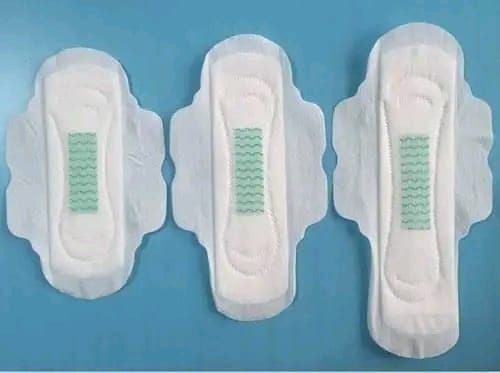
High Cost Of Sanitary Pad: Women go in for old clothes, Calico And Toilet Rolls3 min read

Some females are going back to the use of old clothes, toilet rolls and grey baft fabrics for their monthly periods (menstruation) due to the high cost of sanitary pads.
For those who are now using old clothes, it comes at a cheaper cost than the sanitary pads which cost an arm and a leg.
In a chat with The Mirror , some students, traders, food vendors, head porters (kayayei) in Accra lamented that some of the low branded pads, which were sold on the open markets and at corner stores between GH₵ 3 and GH₵6, were now being sold between GH₵18 cedis and GH₵25.
As for the premium brands, some are as high as GH₵130 at the malls and supermarkets. These were products which were not more than GH₵15 last year.
A student at the University of Ghana, Elizabeth Coffie, said in the past, she and her roommates used to contribute money to buy in boxes from Okaishie in Accra to share.
“All we do is to contribute GH₵25 each and we buy the box for GH₵100 and share it among four of us. What we get as individuals often last for the semester. Last week, when we went to town, the same pads we were paying GH₵100 for was now about GH₵350.”
Ms Coffie said as a result of the price increase, they decided to buy some toilet rolls instead of the sanitary pads.
“Unfortunately, one of my colleagues complained that she was having some reactions in the form of rashes as a result of the use of the toilet roll,” she mentioned.
A group of head porters who sit around the Accra Brewery told this reporter that some of them went to Kantamanto Market to buy some of the old clothes which were often used for car dusters to use during their periods.
One of the head porters, Talata Django, explained that “you can get some of the used clothes as low as 50 pesewas at the dawn market then you cut them into pieces and use instead of the pad which we can no longer afford. Besides, you can wash them and keep them for the next month.”
A food vendor at Cowlane, Hajia Amina Yakubu, told The Mirror that she used to buy sanitary pads from the wholesalers at Accra Central for about 15 young girls who helped her in the preparation and sale of ‘waakye’ and ‘tuo zaafi’.
“I was doing that gesture for them because I believed in good body care. You can’t be selling food and have girls staining their clothes because they can’t afford common pads. Besides, I also have children and grandchildren who I often buy these sanitary pads for, so I decided to include my workers as ‘sadaka’. However, with the increase in prices, I have asked them to buy their own pads which is a big challenge to some of them.”
A baker at Adabraka, Madam Norley Tetteh, disclosed that she and her girls washed some of the empty bread flour sacks which were cotton-like and used them.
“My grandmother taught me how to use this since I was a teenager and it has worked for me. Therefore, I introduced my daughters but because of peer influences in school, they abandoned it for the pads. But now they are expensive and so they have come back to their senses. I told them, I can’t give extra money for pads as a single mother. You either join what I use or you are on your own,” she stated.


















